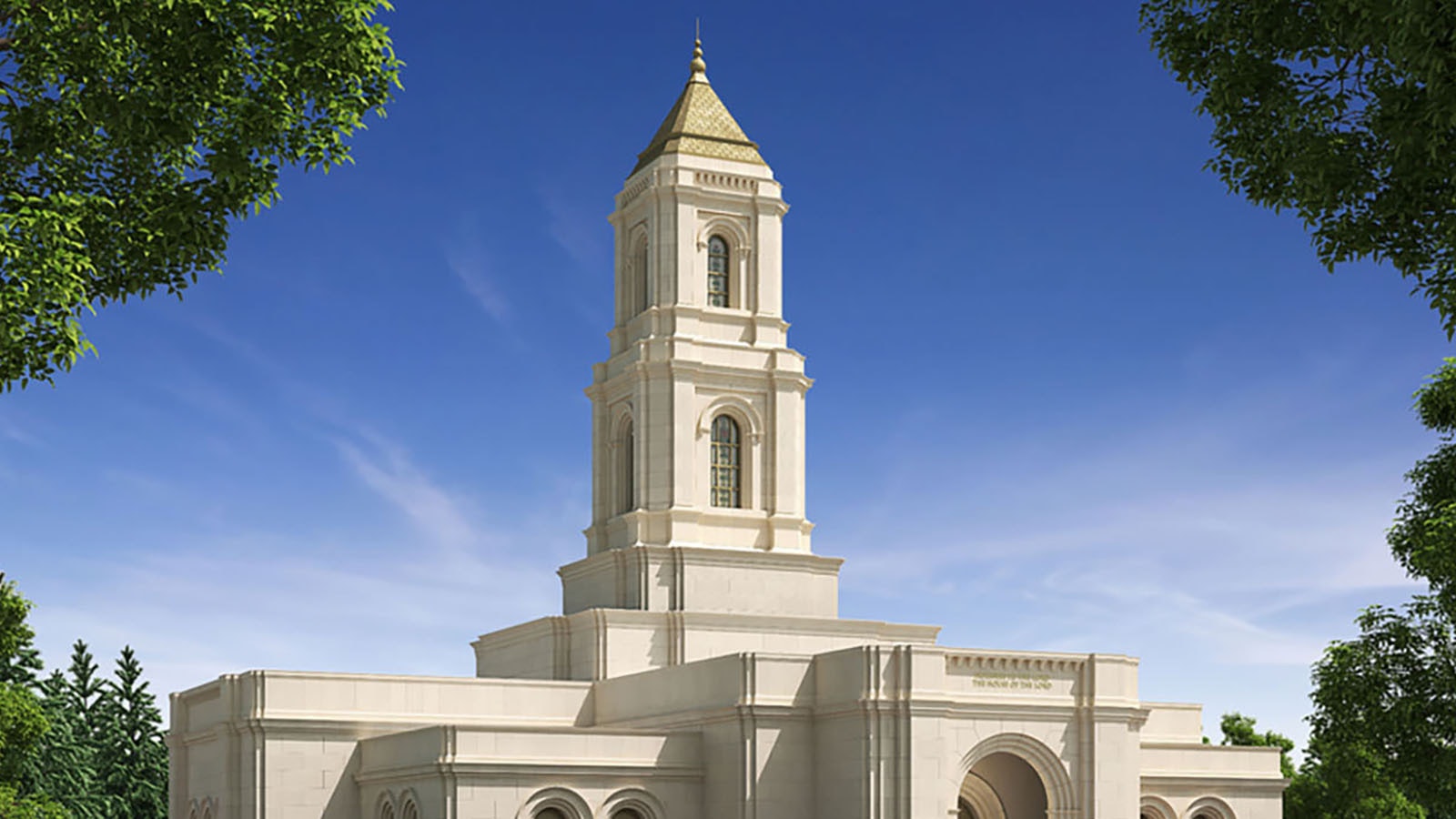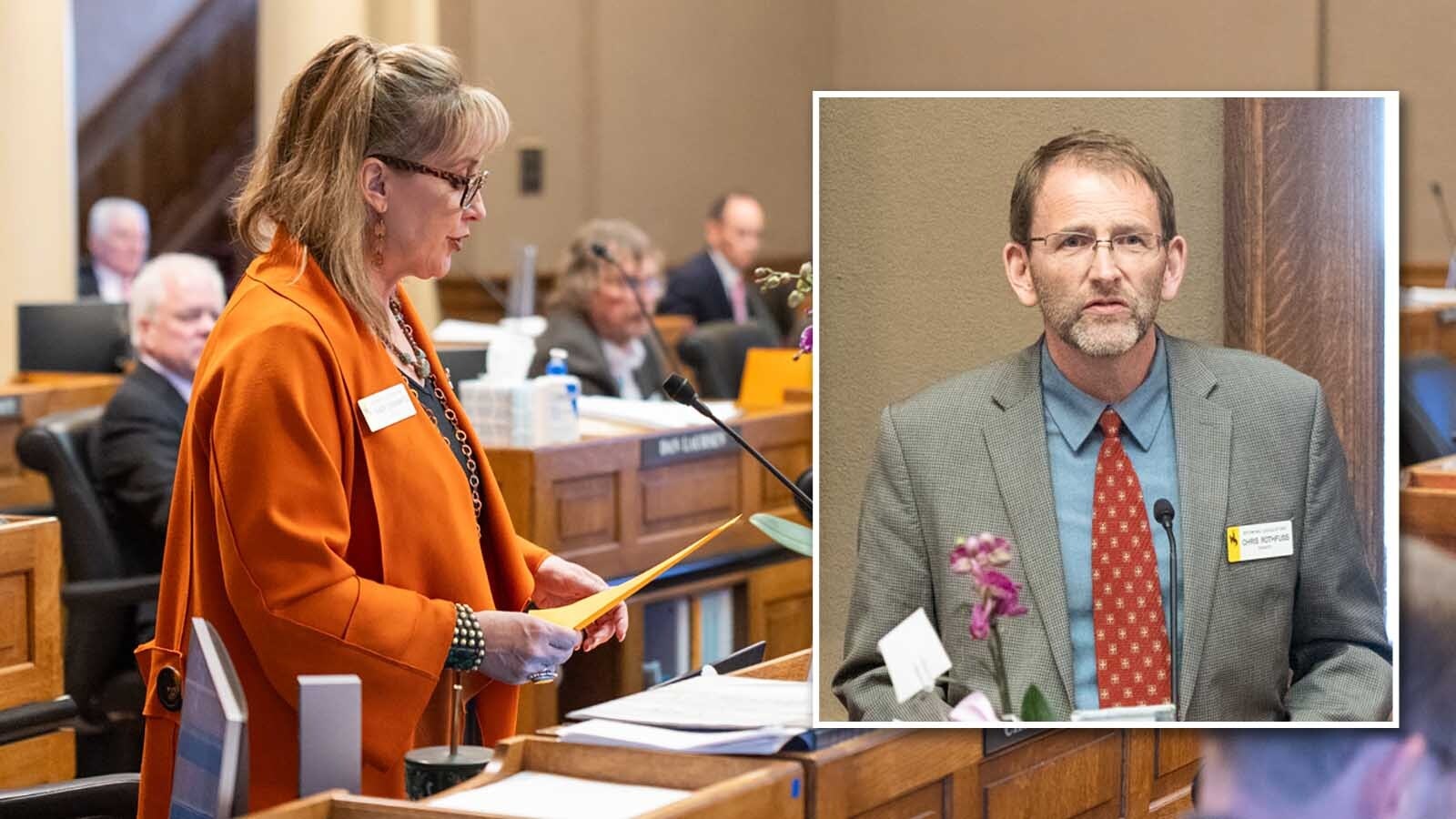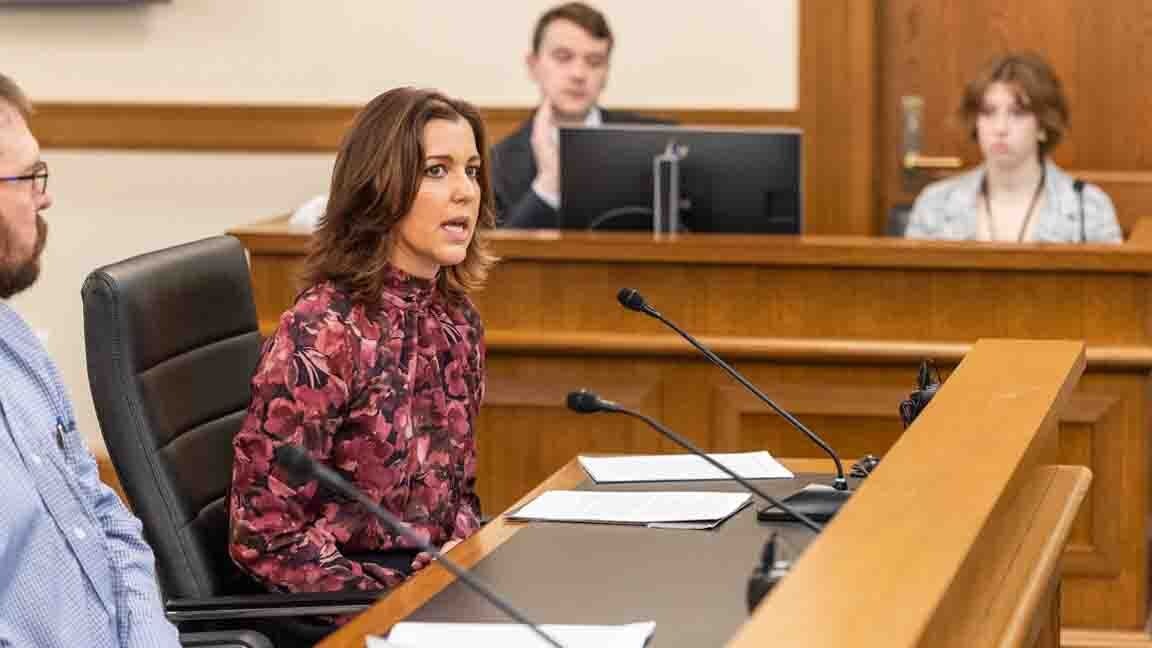It wasn’t entirely clear to many of those at this week’s Cody Planning and Zoning Board meeting what had been decided for a controversial Church of Jesus Christ of Latter-day Saints temple proposed for the city.
There’s still disagreement about the results of this meeting, but Cody city staff, members of the church and the chairman of the Planning and Zoning board all say the church has final approval to build, including a 77-foot steeple that’s been the focus of months of local opposition.
The irony of that determination is that the Planning and Zoning Board didn’t specifically address the steeple in a Tuesday vote to green light the temple project.
By not addressing the building’s height — and the city’s determination the steeple doesn’t count because it’s not technically part of its roof — is what city and church officials say allows the temple to move forward as originally proposed, said Planning and Zoning Board Chairman Carson Rowley.
Basically, because it wasn’t specifically rejected, the plan’s considered approved.
“I think it was kind of an eye-opening on how city code is written,” Rowley said, adding he knew that’s what he was voting for.
Terry Skinner, a member of Protect Our Cody Neighborhoods, a group opposed to the temple location, said the group is exploring and pursuing legal options.
The fight over the temple “is far from being over,” he said.
A Towering Problem
The main complaints some in Cody have voiced about the temple plan is that the building’s height — 101 feet with the steeple — would ruin the viewshed for neighbors, that it plans to be illuminated and would bring increased traffic to the neighborhood.
But it was the steeple’s height that drew the most opposition and the planning board’s hesitation toward the project.
During Tuesday’s meeting, a compromise was proposed by the church that would have lowered the tower by 16 feet, giving the temple a total height of around 85 feet. Three members of the board rejected the compromise.
With the 101-foot height proposal also voted down, the site plan moved forward with 17 conditions, but no height consideration. This lack of determination is what gives the church a green light to move forward with the project, Rowley said.
Jimmie Edwards, a member of the church’s Cody Wyoming Stake Presidency, told Cowboy State Daily that, "Given the decision of the board, the church only has approval to build the temple as originally submitted."
What About Court Petitions?
Board member Kim Borer, one of the people to vote against the proposed compromise, disagrees.
She told Cowboy State Daily the issue of the tower height is still unresolved and needs to be ironed out in one of two Park County District Court petitions the church had previously filed challenging the board’s prior decisions.
“I do think they’re in an interesting place,” she said.
But unless a court order preventing the temple construction is filed, it’s up to city staff to allow the project to go ahead, which City Planner Todd Stowell and Building Inspector Sean Collier have already indicated they will allow.
Skinner also pointed out that it was the church that filed the court petition, so simply withdrawing their court petitions means a judge would have no authority to rule on the matter.
The two court petitions filed by the church against the city are still technically active, and Protect Our Cody Neighborhoods has filed requests to intervene in both.
Skinner said his group also plans to appeal in court the board’s approval of the temple’s site plan and conditional use permit.
Shortcomings In Code
Rowley expressed concern about the temple’s height consistently throughout the approval process and still contends that this issue was never resolved.
For the project’s conditional use permit, the board determined the highest point of the temple facility would be measured at the main roof of the building, a point about 26 feet off the ground. Rowley said this alone did not disqualify construction of the tower as proposed.
Per board advisement, the church had originally submitted a special exemption to exceed the 30-foot height limit for the rural residential zone that the temple is being built in, but later rescinded that application.
Rowley said the church pulling its exemption request and the planning board never resolving the height issue allowed the church to find a loophole of sorts within Cody City Code where it could move forward with the project as originally proposed.
“With the special exemption off the table, we had no ability to speak toward the height of the building,” he said. “We cannot compel the applicant to submit an exception.”
Rowley said it was an eye-opening experience for him and the board to realize that “the process of what city code says in 2023 is different from what it said in 2014.”
But he also had additional concerns about the Religious Land Use and Institutionalized Persons Act of 2000, a federal law frequently cited by those who support construction of the temple in Cody. This federal law protects people, houses of worship and other religious institutions from discrimination in zoning and landmarking laws and has been used in arguments by those who support the temple.
Rowley believes the law applies to the Cody Wyoming Temple.
Skinner, however, believes the reference to the federal law is bogus and his fellow group member Carla Egelhoff said other references made by the city to the International Building Code also are false.
Skinner believes city staff purposely let the temple pass through, the planning board did an about-face and that most people in Cody are “upset, confused and outraged” about the decision.
“This process has not been fair from the beginning,” he said.
It’s Over?
Rowley said he doesn’t anticipate any more meetings about the temple for his board, and City Attorney Scott Kolpitcke said he isn’t aware of any scheduled meetings between P&Z board members and the Protect Our Cody Neighborhoods group.
Skinner and Egelhoff firmly believe the issue isn’t settled, and they have been communicating with a few City Council members about the matter. They said under city code, Mayor Matt Hall and City Administrator Barry Cook technically have the right to block any building permit.
“We have been getting people to reach out to City Council to voice their true frustration about an unfair, biased process that finished on Tuesday,” Skinner said.
New Experience
The Cody P&Z Board typically handles matters that draw much less attention, with around 10 people in attendance at an average meeting, Rowley said, describing the responsibility as “pretty cut and dry.”
Rowley said he never expected an experience like this when he signed up for the volunteer board three years ago.
The Cody temple saga gained state and region wide notoriety and an emotional response from many Cody residents. Hundreds of people turned out for the P&Z meetings and many more emailed members of the board their thoughts on the matter.
Rowley said he understands public frustration over the temple determination and wants people to know the board has tried its best.
“We look at code and try to find a compromise the best we can,” he said.
Leo Wolfson can be reached at leo@cowboystatedaily.com.





